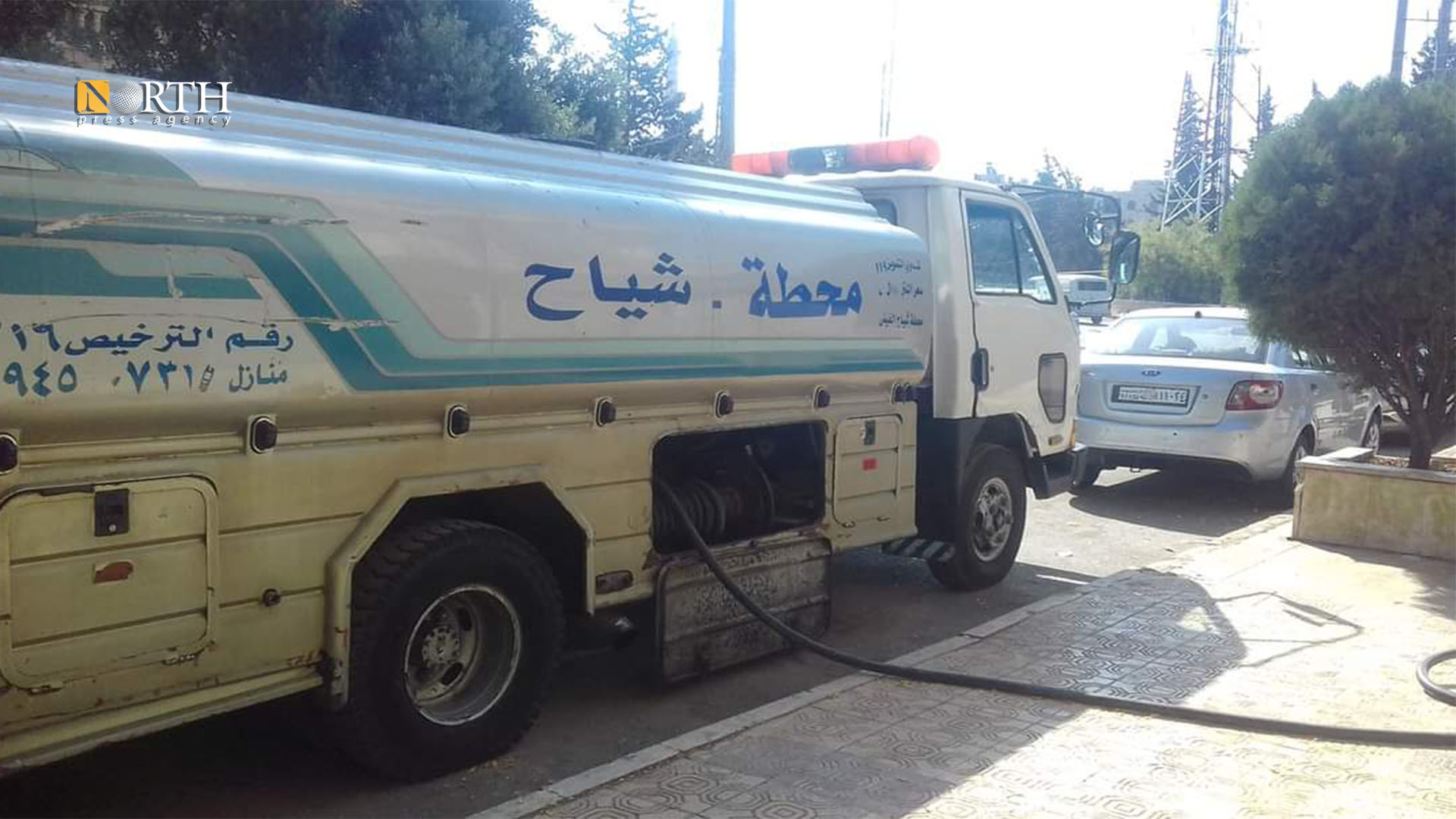ALEPPO, Syria (North Press) – Abdulfattah Homsi, a resident of Bustan al-Qasr neighborhood in the city of Aleppo, northern Syria, is still waiting to receive a text message to fill heating oil, amid fears that he will not get his oil allocations as last winter.
Homsi, the head of a family of four, said most residents of the neighborhood have not received the subsidized heating oil until now, amid their inability to buy it from the black market.
The deterioration of the living situation forced Homsi to borrow money from one of his relatives to secure the cost of the subsidized oil hoping to receive his allocations, “but it seems that we are waiting in vain.”
For three years in a row, some families in Aleppo did not receive their allocations of heating oil despite the reduction in quantities year after year, while others received their allocations last year or the year before.
Last winter, the Syrian government reduced the population’s allocations of heating oil by half, i.e. it gave 100 instead of 200 liters, and this year it reduced the amount by half, that is 50 liters.
At the beginning of August, the Syrian Company for the Storage and Distribution of Petroleum Products (Mahrukat) announced the start of registration for heating oil at a rate of only 50 liters per family.
The distribution process is based on the principle of sending a request for diesel allowances through the smart card (Ration card) application on the phones, and then a text message arrives to the beneficiary specifying the designated place to receive the allowances at a price of 600 SYP per liter.
Empty warehouses
Government-held areas suffer from a severe shortage of fuel, and through the policy of ration card, the government policies have not succeeded in delivering the allowances to those who are entitled to it or granting them their needs.
A source from the government’s company in Aleppo said the governorate includes 600,000 ration cards (the families registered in the application), “but we were only able to distribute 30% of the cards.”
He pointed out that their warehouses are empty and that they are waiting for additional quantities of diesel to arrive, “but most of the registered citizens will not be able to obtain diesel due to the scarcity of quantities coming to Aleppo.”
Jawad al-Omair, a resident of Ashrafiyeh neighborhood in Aleppo, did not receive his heating oil allocation this year as well.
Although the oil allocated will not suffice him for more than a week, he hopes that this year he will be lucky and receive subsidized diesel.
Black market recovery
Al-Omair wonders “Do the government officials who sit next to the air conditioners and heaters think about how the citizens provide warmth for their children?”
Meanwhile, he uses blankets and thick clothes to keep his five children warm, with no electricity either.
Two days ago, the Director of Planning at the Syrian Ministry of Electricity, Adham Ballan, said the electricity situation is going to be worse during the upcoming next two months.
While the government says that there is a severe shortage of fuel, oil derivatives are available in large quantities in the black market, but at high prices, according to the residents.
Although Syrian law prohibits all trade of oil derivatives, this trade is spread openly in a number of Damascus’ neighborhoods and the roads to and from the city, in addition to its spread on the public roads linking the capital and other governorates.
The residents in government-held areas believe that the distribution of heating oil according to the text message system opened the door for influential people to trade in petroleum products in the black market.
On April 5, the Syrian government decided to completely transfer the process of distributing gasoline to the ration card according to the text message system.
Diya’ddin Sayfou, a resident of al-Salihiya neighborhood in Aleppo, says whoever has money can buy diesel from the black market in the quantities he wants, while the government is unable to secure 50 liters for each family.
In early 2020, the Syrian government started rationing subsidized food, like rice, sugar, cooking oil, and bread, in addition to fuel via Smart card (Ration card) to address the economic crisis in the war-torn country.

